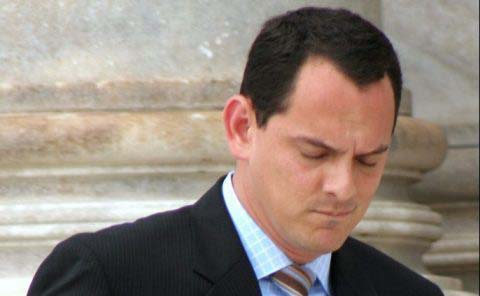Men and Emotions: a Key Part of the Journey to Wholeness

The whole subject of men and emotions is a big one in our lives today. For us men, it’s all tied up with our ability to accept and be kind to ourselves.

Accepting our emotions? To be frank, this is exactly what men in my age group were taught not to do. We were taught that the last thing you wanted to be as a boy growing up was “emotional”. That was equated with being weak, or, to use that horrible phrase, “being a sissy”.
For guys my age, “growing up” was equated with learning to hide your feelings, which, of course, was a sure recipe for anxiety and depression. I would like to think that things have improved since I was younger — but the evidence would seem to indicate that we still have a long way to go.
Studies by researchers like Emory University’s Robyn Fivush show that mothers of children between ages 2 and 3 respond quite differently to boys and girls around emotion. Girls are often encouraged to feel the emotions more directly than boys, and girls tend to be given the message that it’s OK to feel sad — but not to get angry. Meanwhile, boys get the message that anger is much more acceptable than sadness. Girls are also encouraged to rely on a support network around feelings, while boys are encouraged to be much less expressive and more contained about feelings — and especially not to shed tears.
Maleness and the Spectrum of Feelings
In our culture, men tend to learn to be cut off from their feelings, especially strong feelings like sorrow or grief. This dissociation can be a major barrier to accepting who and what I am, and to the journey to wholeness, or individuation process.
The fact is that large parts of our life and our identity are fundamentally connected with experiences involving strong emotion. If those experiences are curtailed, or if we cannot share them with others in order to help process them, it can genuinely diminish us as people.
If men are taught to cut themselves off from their feelings, to shun emotional contact with others and/or to use substances and distractions to bottle up feelings and repress them, the consequences can be severe and far-reaching. This was shown very insightfully in a recent CBC Alberta documentary, “Digging in the Dirt” which highlights the mental and emotional price paid by oil and gas industry workers in isolated areas.
The film documents the stories of several men working in the trades in isolated camps, where there is no nearby town, no social support and where the workers “FIFO” — fly in, fly out — at the beginning and end of every 3 week shift. Each of these men tells how he had learned to repress and deny feelings of isolation, loss and emotional hurt. This included hiding these things from other men, but even more fundamentally from themselves, often in ways that involve drugs, overwork and alcohol use. This attitude toward feeling, along with an aggressive, “hypermasculine” male culture in an environment where there were no emotional supports was utterly disastrous for these men. They were — mostly — able to pull out of the tailspin in which they found themselves, when they began to connect with supportive others, and began to acknowledge and accept their own feelings and emotions.
Why Being a “Strong Guy” May Hurt More Than Help
Most boys are brought up to revere the image or ideal of the “strong man” It’s an ideal as old as Homer’s Iliad — and much, much older. For the most part, that “strong guy” image doesn’t include any kind of emotional vulnerability. Can you imagine The Invincible Iron Man having a moment of emotional connection and sharing his deep sadness?
If being a “strong guy” is about suppressing emotion and avoiding real connection with others, it may hurt us far more than help us. The whole thing may end with being not so “strong” after all. It may also keep us from connecting with some essential parts of our own life and story. Often for men, exploring the parts of our lives where we’ve felt things most strongly, and felt at our most vulnerable, can be a doorway to experiencing ourselves in new and liberating ways.
On the other hand, if we men don’t explore our emotional reality, and if we even resist it, we may well find our world getting smaller and smaller, and more and more out of control, emotionally. That was certainly the experience of many of the men featured in Digging in the Dirt. This can lead to experiences of deep distress, especially at times of major life transition or mid-life transition.
Emotions and the Journey Towards Wholeness
Exploring our emotional life is a key part of our journey to wholeness. It’s only as we come to fully accept all of our emotional and feeling states, including the difficult ones like anger, sorrow and fear, that we start to get a comprehensive sense of who we are. Only then do we begin to explore the undiscovered self. Sometimes, what our emotional states can tell us about ourselves comes as quite a surprise.
Yet recognizing and accepting our emotional selves is only part of the journey with our emotions. Eventually, we will seek to have enough distance from our emotional states to not be completely run over by them and controlled by them. However, to get to that place, it’s necessary to first accept our emotional states for what they are.
This journey to find our emotional life can be intense. It requires courage, patience and a genuine kindness for oneself and self-acceptance. It can be tremendously helpful in this work to have the support of a compassionate and trustworthy /a-midlife-transition, who can assist in processing the full range of our feelings safely.
